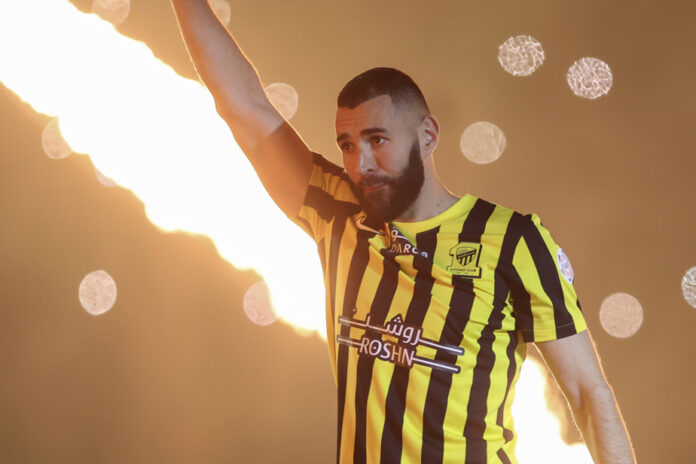(Riyadh) After a summer of record transfers, the start of the Saudi Championship on Friday is arousing unprecedented interest, but also criticism from the oil kingdom suspected of wanting to embellish its image through sport.
Several clubs have attracted stars of world football this summer, from striker Karim Benzema, midfielder Fabinho and winger Sadio Mané, after Cristiano Ronaldo signed from Al-Nassr last January.
Last month, Al-Hilal even offered 300 million euros to Paris Saint-Germain to sign Kilian Mbappé, but the French striker refused to meet with the leaders to discuss a possible transfer.
“Saudi Arabia dreams of becoming the English Premier League,” says Simon Chadwick, professor of sports economics at Skema Business School.
“The media is giving it attention and some football fans are wondering which channel they can watch the Saudi Pro League on,” he added.
Just five years after opening its borders to non-Muslim tourists and allowing women to drive, Saudi Arabia is trying to open up its conservative and long-closed society to foreigners.
The world’s largest oil exporter has spent hundreds of millions of euros on sport: the transfer of Cristiano Ronaldo, the Formula 1 Grand Prix in Jeddah or the lucrative LIV golf circuit for example.
These initiatives are part of Crown Prince Mohammed bin Salman’s grand plans to modernize the Saudi economy and reduce its dependence on oil.
The kingdom wants “the compass of professional football to point to the Middle East and the Arab world”, according to Moqbel Al-Zabni, editor-in-chief of Al Riyadiah newspaper.
The signing of star Cristiano Ronaldo in January from Al-Nassr, a club based in the country’s capital Riyadh, brought the Saudi Pro League to the world’s attention.
The kingdom, thanks to staggering salaries, has since attracted confirmed stars as well as progressing players and high-level coaches.
“I’ve been working in sport for 40 years and I’ve never seen such a big and ambitious project,” British director Peter Hutton, who sits on the Saudi league board, told the BBC.
Manchester City manager Pep Guardiola told him the Saudi league had “completely changed the market” and expects other players to follow suit, with the 18 teams entered potentially having eight foreigners each.
For some, these investments also serve to distract from the human rights situation in Saudi Arabia.
“Most of the headlines are about the transfers of big players to Saudi Arabia and not about the long prison sentences handed down to activists,” a Western diplomat in Riyadh told AFP, on condition of anonymity.
“There are challenges at all levels,” he added, particularly with respect to contract compliance and new player rights.
In June, Al-Nassr was handed a transfer ban by FIFA for failing to pay compensation due to English club Leicester after the transfer of Nigerian Ahmed Musa.
Saudi football still has a lot to do according to Simon Chadwick.
“We’ll probably have to wait the next five to ten years to determine if there’s any lasting change,” he says.















